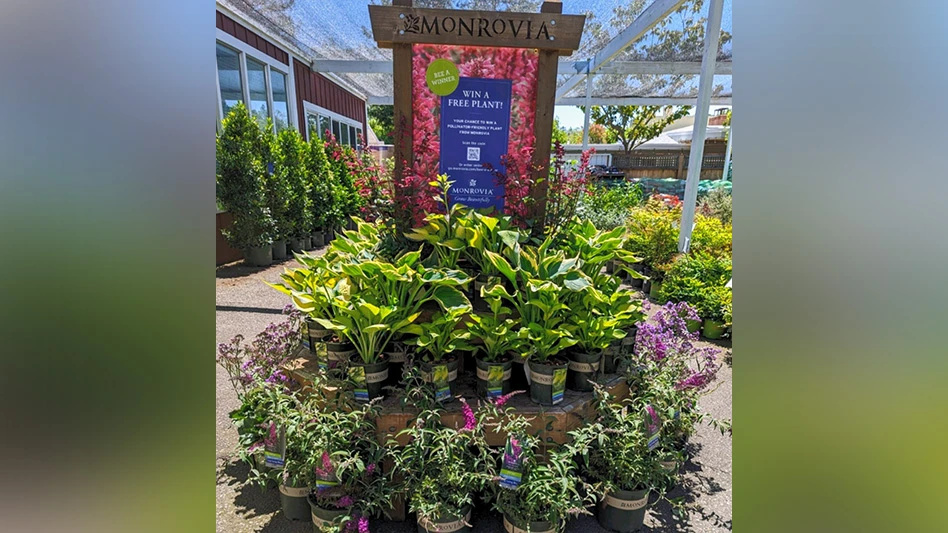 Q: How were sales over the holidays and toward the end of 2013?
Q: How were sales over the holidays and toward the end of 2013?
A: The holidays have been fun. It was really scary with the way it started so late. Thanksgiving was Nov. 28, so we lost six retail days in between Thanksgiving and Christmas that we had last year. So we started off well behind.
We judge a lot just by our cut trees, because we sell over 20,000 cut trees. Everything else we can keep until the next year, but the cut trees is what we gear everything by and make sure all those are gone. And it seems like everything is evening out at this point. By the time this week is over (interview conducted Dec. 17) it will actually be up a little bit over last year’s Christmas, and last year’s Christmas was pretty good.
Q: Better than in years past and during the economic downturn?
A: Yes, sales are up slightly. It’s been a challenging year, a challenging several years for retail in general. A lot of people’s new kind of happy is when you’re just kind of flat. And we don’t like that. We want to grow. We’ve always been a company that relies heavily on increasing our volume and always are looking for ways to grow— whether it’s to add locations or more sales at the nurseries we’re running. We really like sales growth.
Q: As a garden center with more than 20 retail locations, is there something customers have been asking for across all locations this year that you plan to stock more of next year?
A: Some of the hot button issues you always hear about are native plants and edibles. I have to admit, it seems like I read more about them than I sell them, but we do well with them, and that is something that over the years has grown. But what really stuck out this year is the downy mildew that affected the impatiens, and we chose not to sell impatiens. And that’s a huge seller for us, probably in the range of $500,000 to $600,000 a year in that product that we just simply stopped selling.
We were able to substitute in some things and make some good alternative suggestions and certainly played it as positively as we possibly could. We’re considering selling some next year. We haven’t made that decision but we’re thinking about it because it didn’t seem as bad as everybody thought it was going to be. But that was a huge hit on what didn’t sell.
Q: How did you replace those sales and keep customers who were asking for them happy?
A: Impatiens are a beautiful plant that are awfully hard to replace. As far as shade flowering plants, you just don’t get the show that you get from impatiens. So best case is they find a cure to this problem and sell impatiens. We’ll continue to be stronger in begonias than we were before, and they’re certainly a good plant. There are also so many different kinds of hydrangeas now. At one time we wanted to advertise how many varieties we had just because we realized we had about 28 different varieties.
Q: What other trends are you seeing in the industry?
A: A lot more people are having work done for them, whether that’s mowing the grass or getting their landscaping done. They still care about their yard looking good, but there are a lot less people who just love to garden, [especially] young people, whether that’s the time constraints, or the other things they always list. It just doesn’t seem like we have enough new young people gardening.
We certainly are concerned about that. And part of it is reaching them in the ways you need to reach them with some of the new technologies. But you’re walking a fine line when your main demographic is slightly older or less technologically savvy versus trying to get that young customer who’s very tech savvy.
You have to use some of the old methods and some of the new methods all at the same time and capture as many of both as you can.
Q: Is there anything other than the technology, such as offering certain products or workshops, that you’re trying that you’ve noticed the younger generation likes?
A: What I’ve found with most of the events — and we get some very well attended events — is it’s a lot of older people. There are certainly some young people there but the majority are the older people, just like our demographics. I think there again it’s a time issue. We have events on the weekends when you’d think is the most available time for everybody, but there are soccer games. I know my weekends sometimes can be the worst time to try to do anything like that. I think it’s hard to get that younger crowd into those events. We get some but I’d like to see a lot more. I do think those things build a real, long-lasting customer.
Q: How else can you build real, long-lasting customers?
A: Any services that you can add help tremendously, whether that’s planting it for them, or grounds maintenance, or any other type of services are big. I know with a lot of our clientele it is, as opposed to them doing it themselves. And make it easy for them, too. Big, heavy ball-and-burlap trees — a product line we were strong in — have become very difficult to sell. People who do it themselves don’t necessarily want to try to wrestle a 300-pound tree.
So I think containerized trees are a better solution for a lot of people. It’s hard for me as a nurseryman because I can look at that caliber of tree, and it’s just so big and so full and so much more of a plant than a containerized tree, which just isn’t nearly the size and caliber and everything else.
So I can really see the value in that big, heavy tree. But a lot of people get intimidated by trying to do that hard work and getting the tree there and messing with it. I’ve certainly felt like there’s a trend toward making it easier for people.
Send your Profiles suggestions to msimakis@gie.net.
Photo courtesy Of Meadows Farms

Explore the January 2014 Issue
Check out more from this issue and find your next story to read.
Latest from Garden Center
- This Florida garden center's busiest days are in the fall, not spring. Find out how they do it
- Terra Nova Nurseries releases new agastache variety, 'Peach Pearl'
- The Certified Shopify Online Garden Center provides local retailers with ecommerce tool
- Meet the All-America Selections AAS winners for 2025
- Endless Summer hydrangeas and Suntory Senetti glam up Grammys red carpet
- Ball Seed releases 2025 edition of 'Thrive and Flourish' for landscape and garden retail
- American Floral Endowment's Fred C. Gloeckner Foundation Research Fund accepting grant proposals
- Floral Marketing Fund and CalFlowers partner to advance floral industry





